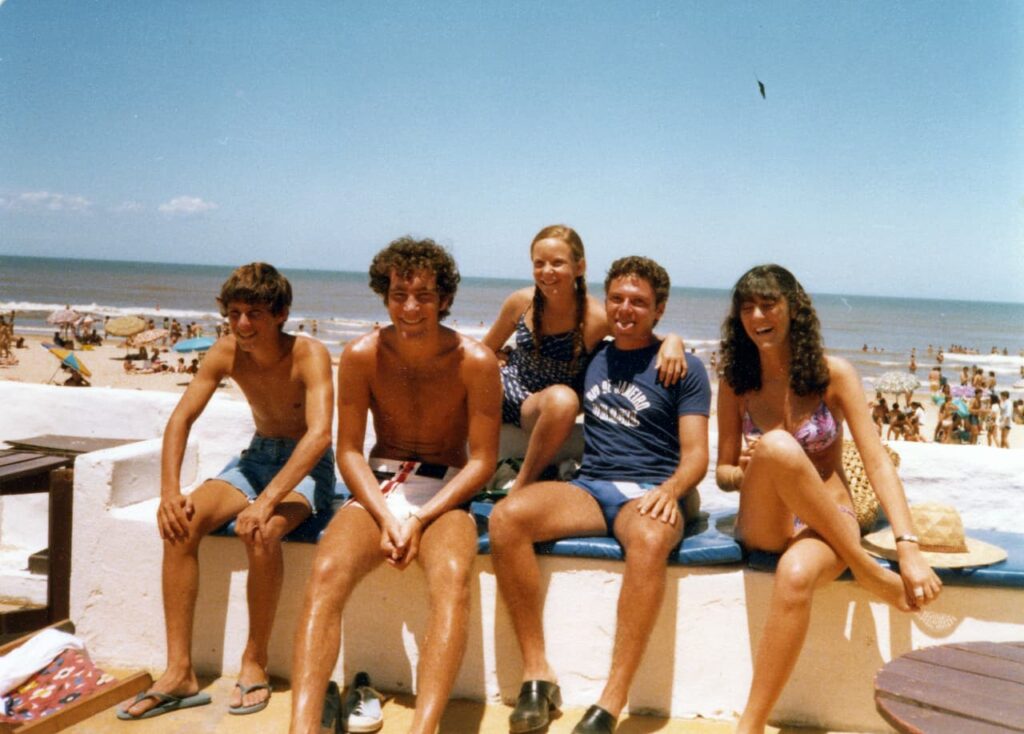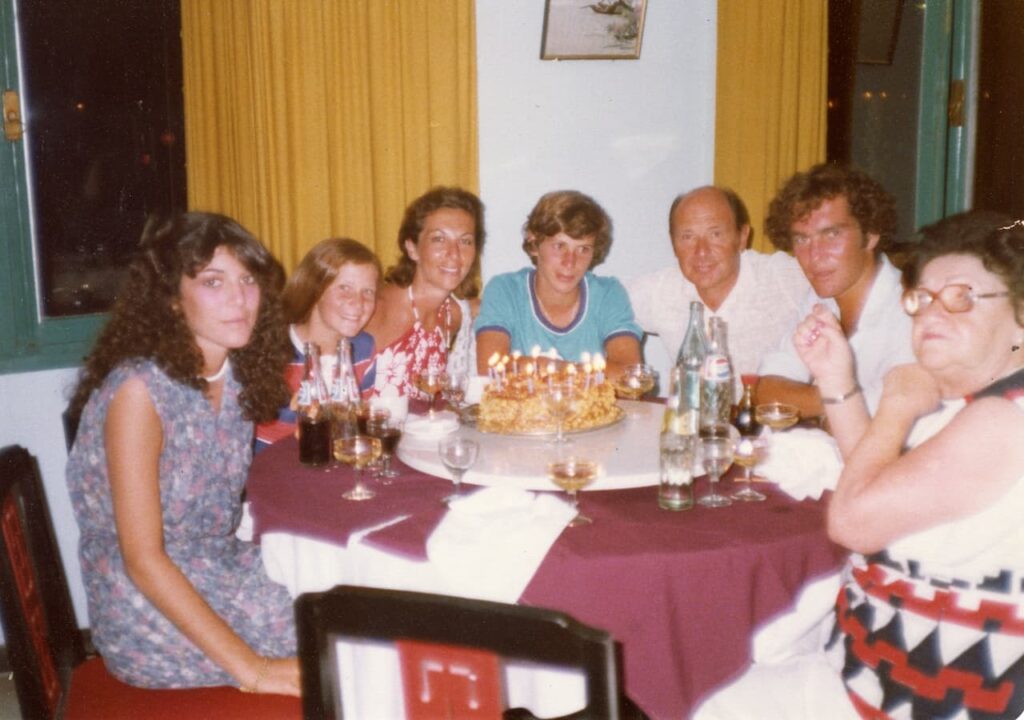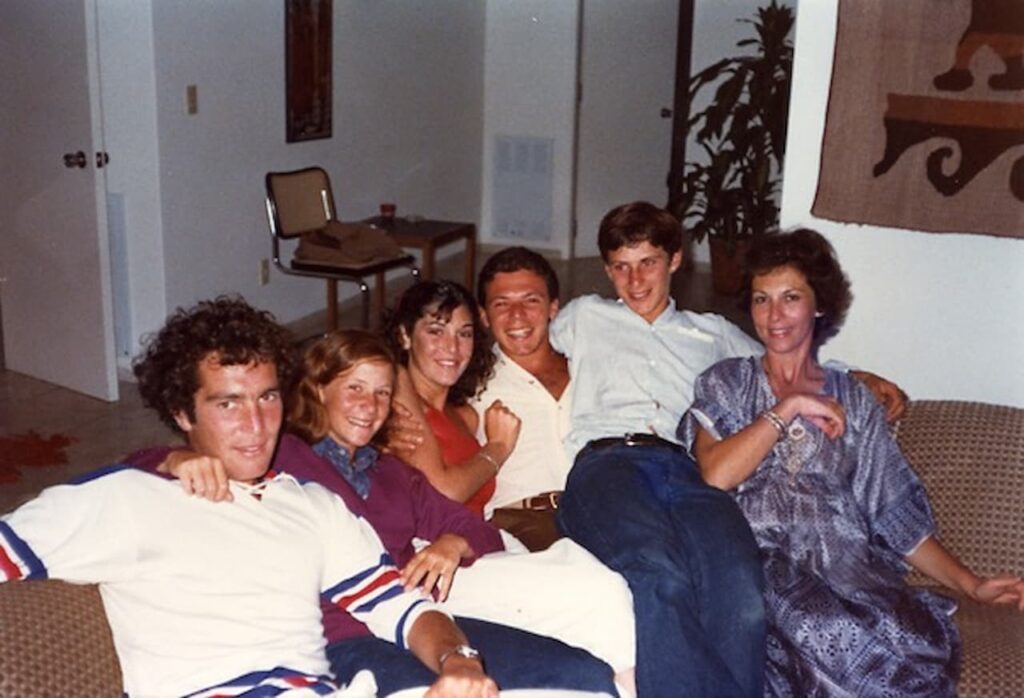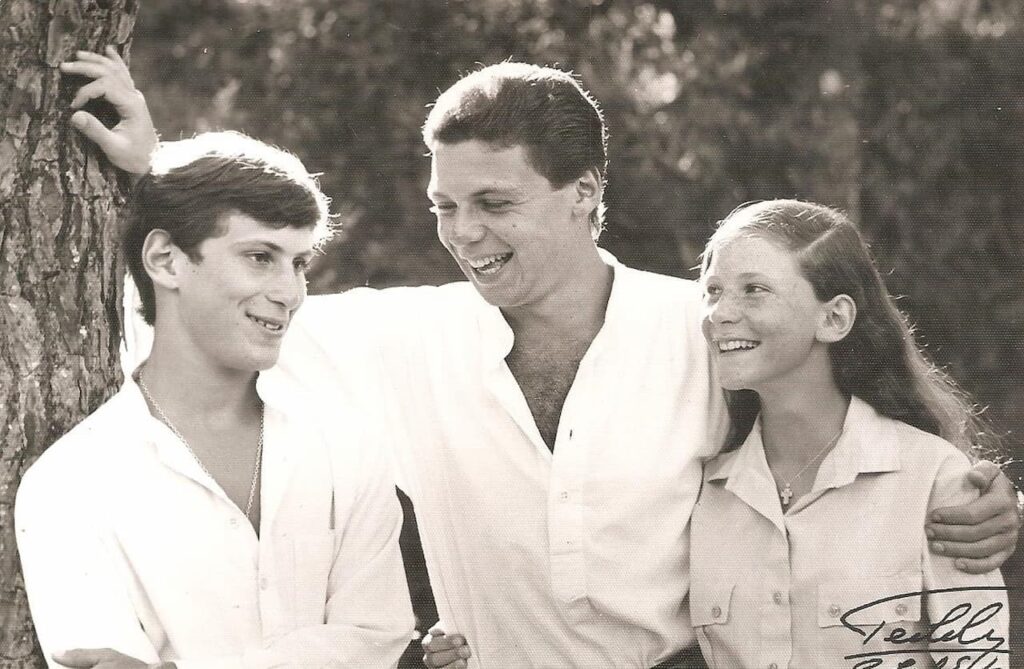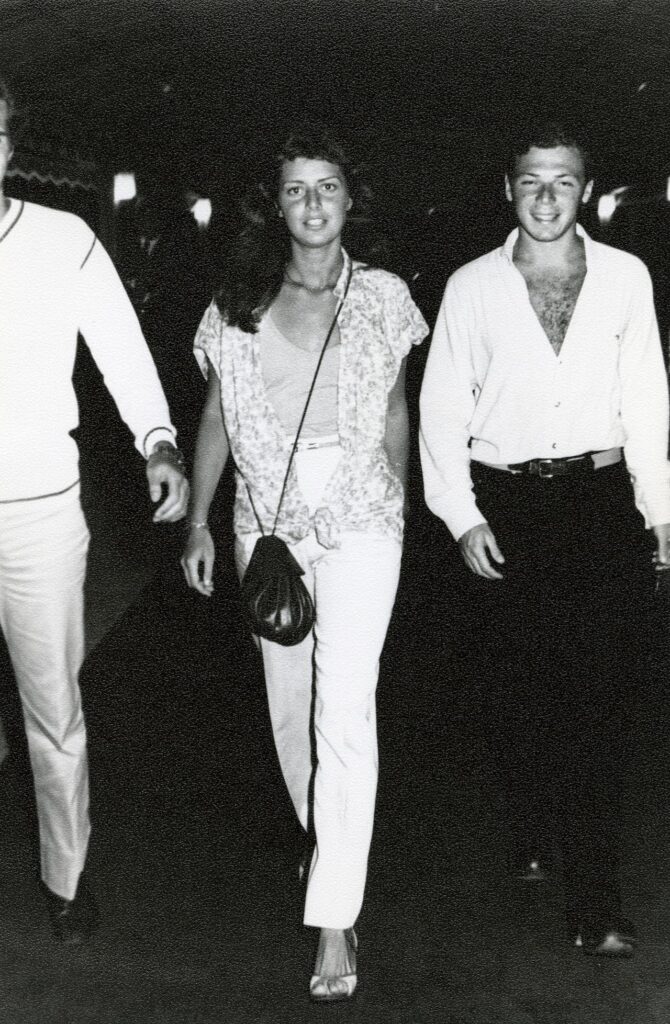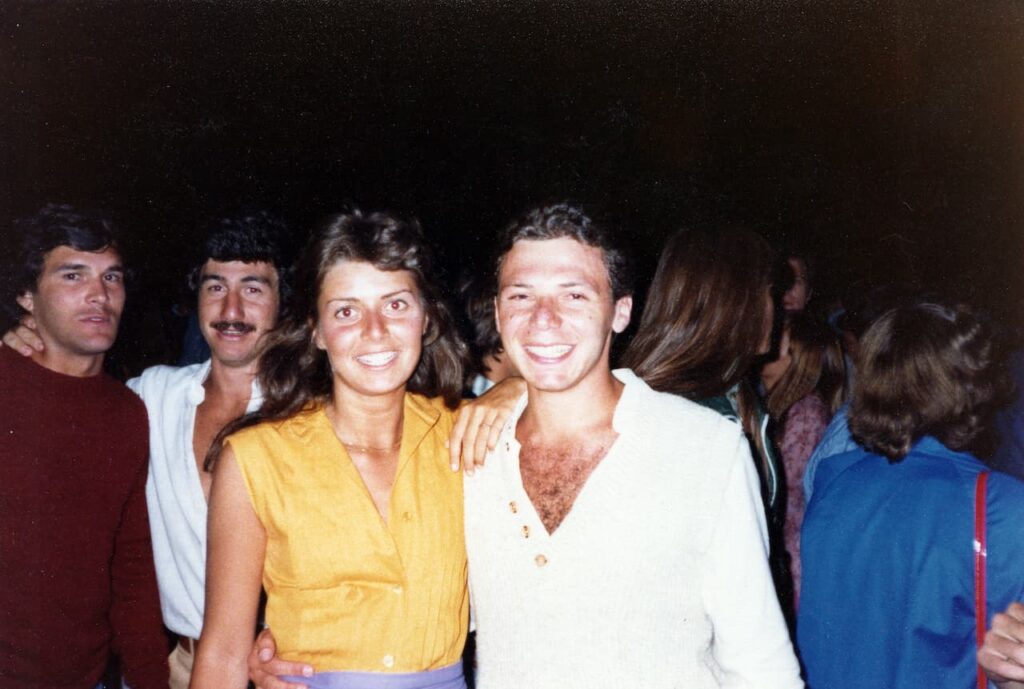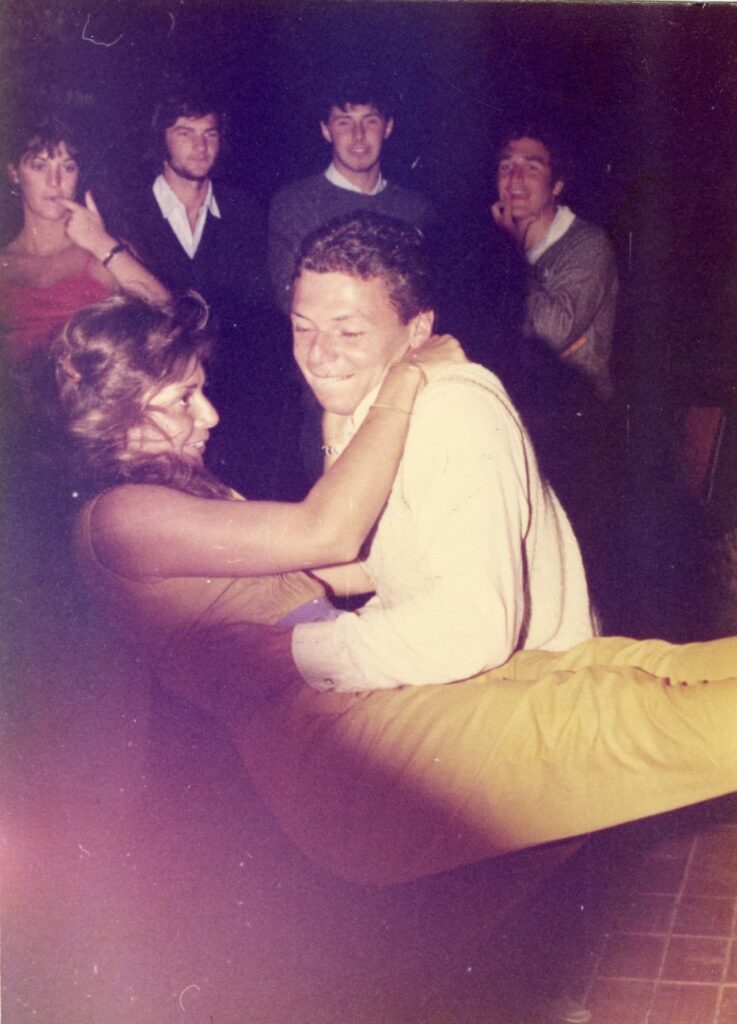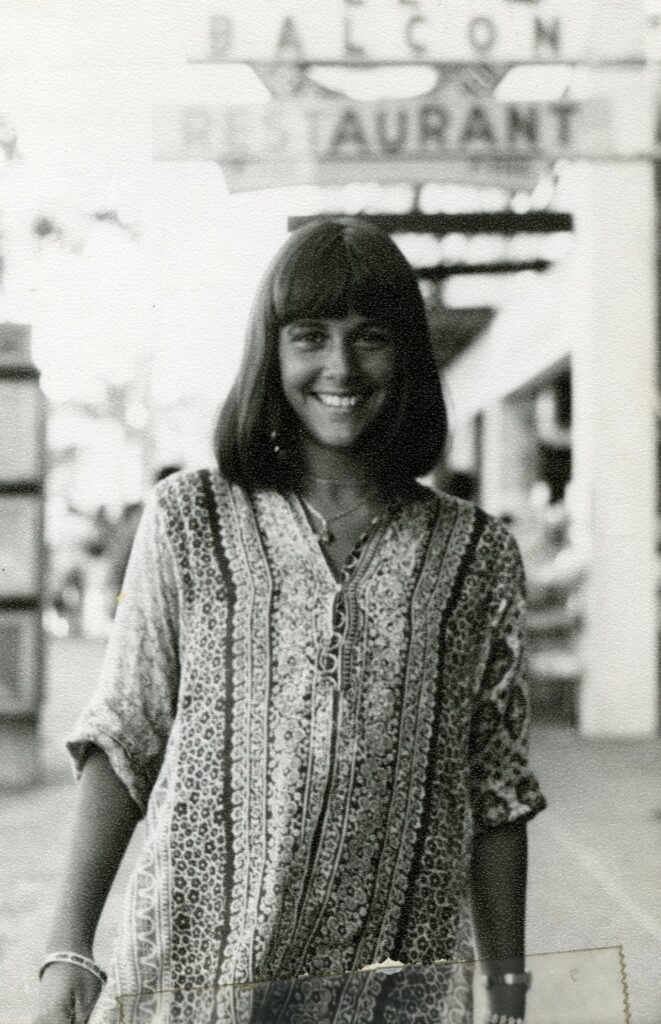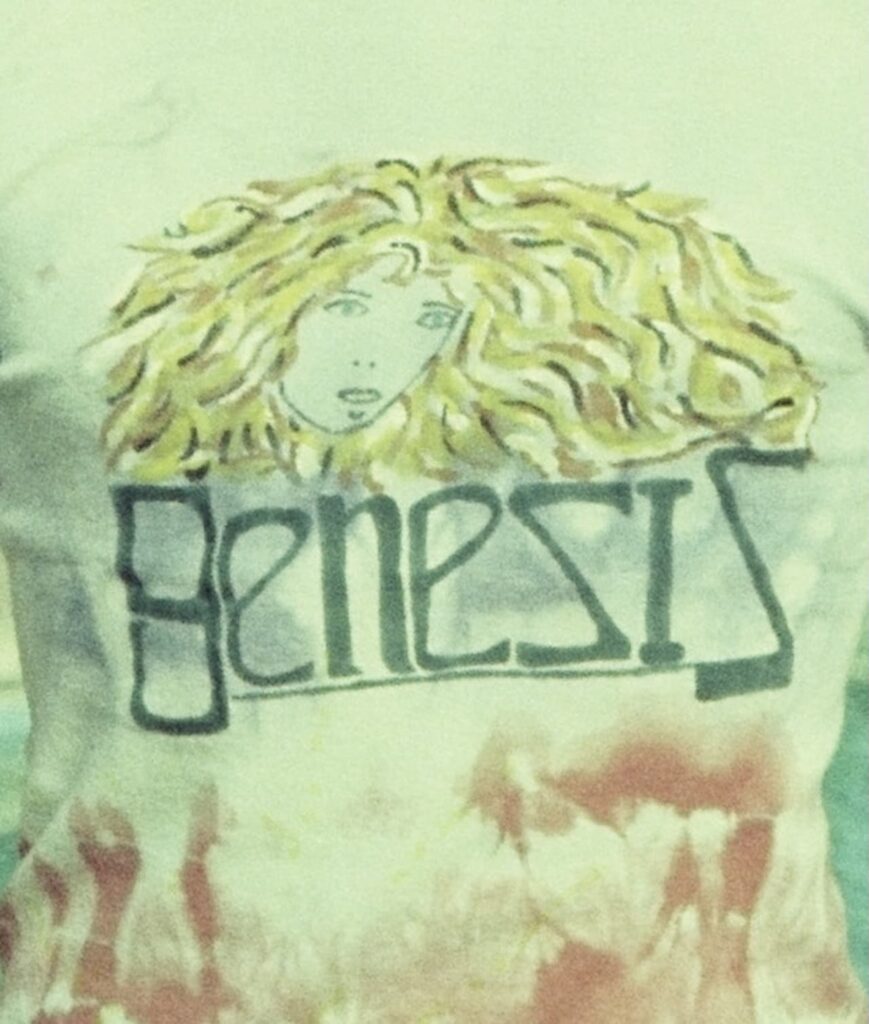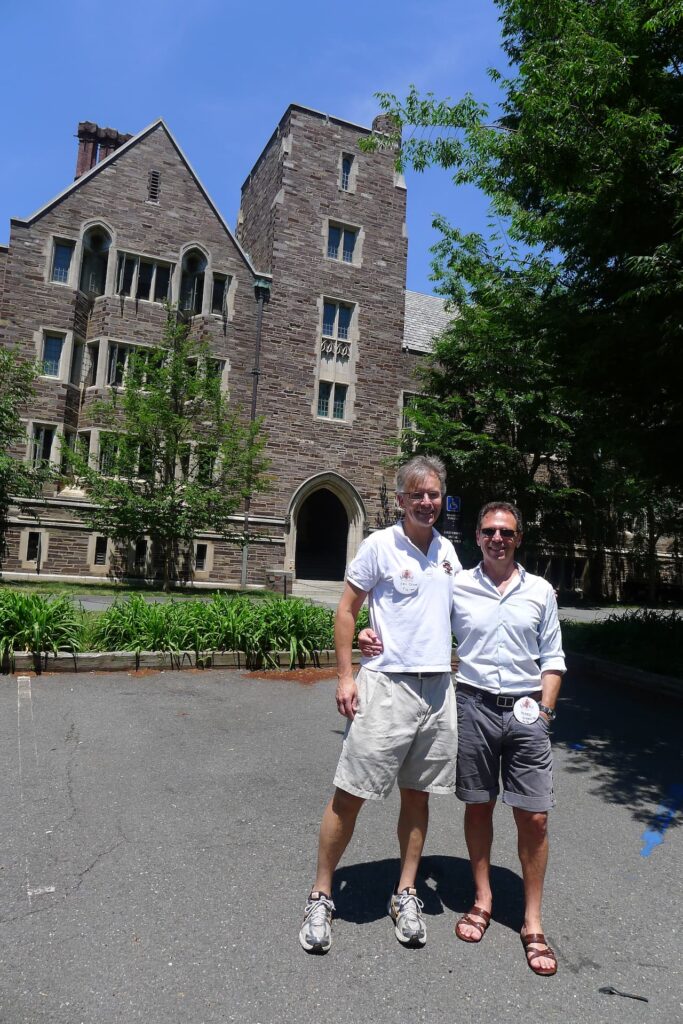I was in Punta del Este for Christmas 1979. As usual, it was party time, magnified by the fact that Carlos and Betty, my new ‘brother and sister’ were closer to my age than Edi and Sonia, and liked to go out. Paul had left the apartment in the Edificio Opus Alpha to Lisl and had bought another one in the Edificio Delfín, only about 200 m from the Opus Alpha. I juggled between the two apartments, but was generally at home very little, consumed by a very active social life.
One day, walking on the beach, someone waved at me. When I got closer, I realised that it was the tennis player Guillermo Vilas, who was at the time at the height of his fame. He asked me where I had gotten the Genesis t-shirt I was wearing. It had been hand-painted by a friend of mine, I said. We then got into a longer conversation. He was interested in music (he was a great fan of not only Genesis, but also of Yes and Emerson, Lake and Palmer, some of my all-time favourite bands). We spoke about poetry—he loved Antonin Arthaud, André Gide and Maja Angelou, which I knew quite well too. He wanted to know what classes I was taking at Princeton, and what impressed me the most about being at such a great university. At the end of our conversation, we exchanged t-shirts—I offered my Genesis t-shirt to him and I proudly wore his Puma t-shirt (which I refused to wash for quite a while). Vilas left a very strong impression in me. I found him unlike the stars I had met at Studio 54—he was humble, honest, down-to-earth and eager for culture. He confessed to me that his tennis career had prevented him from getting the academic experience he would have wished to. ‘But,’ he said, ‘one day I’ll catch up!’ At the time, I didn’t know that he wrote poetry extensively, almost daily. He would, after his tennis career, start a career in music. He’s been one of the few global stars who never stopped learning. Sadly, he has now been diagnosed with Alzheimer.
During my senior year, I roomed with Eric, Bailey Pope and Bernardo. At the time, seniors were the first on campus to pick their rooms, and a lottery decided who among the seniors would choose their rooms first. We were the very first in our class to pick our room. We chose the mythical ‘Rock Suite’, a very spacious accommodation, especially conceived for Laurance Rockefeller, the son of John D. Rockefeller, when he was a student there. It included two bedrooms, a large living room and a tower. The tower was locked for ‘security reasons’ (I guess that the university was concerned that inebriated students might fall of it). The day we moved in, Eric and I went to Princeton’s hardware store, rented the largest wrench we could find, destroyed the lock and began using the terrace of the tower as our private sunbathing area. We also moved up a so called ‘ghetto blaster’ and equipped the tower with a 30-metre telephone extension cord, which meant that we could talk on the phone while sunbathing, something very valuable in the time before mobile phones.
Soon the Rock Suite terrace, with its magnificent views, became a very special party location, a place where we would invite girls very selectively, with a strong preference for freshmen, who considered it a high honour to be invited by seniors to such a unique place.
On one of these occasions, as we were lying in the sun without our clothes on, drinking rosé wine and nibbling on cheese, with Bruce Springsteen’s music blasting out at full volume, we saw a blue hat pop out of the staircase, followed by a less than amused face with a big moustache. It was the campus police. We were asked to dress (a difficult operation, since our garments were two flights down), clean up the tower and told in no uncertain terms to never, ever go up there again. A new lock was installed and for a few days, perhaps a week, we abided by the rules. But then the weather got very hot and our hormones got a little pumped up, so off we trotted to the hardware store, rented another big wrench and started our exclusive parties again. For a while nothing happened, but then one day the Head of Campus Police showed up. This time we were told that one more excursion to the top of the tower and we would be expelled from the university. But by this time, it was already the end of May, we had only a few days left on the campus before graduation, and our investment in wrenches and the extension cord had been long amortised. So, Eric and I moved the Rock Suite party scene to the numerous gardens that the university had to offer, and didn’t suffer too much from the closure of our private garden of Eden.
In the autumn of 1979, I wondered what would be next in my life. I loved my Princeton experience, but I needed to think of my future. It was unclear to me what to do professionally, so I decided not to choose. I applied to business schools because, I thought, this would allow me to gain time. A career in business (whatever that meant) would give me the widest choice of future opportunities. I applied to Stanford and Harvard, at the time the two best US business schools. I was admitted to both and, despite a personal call from the Head of Admissions at Stanford, chose Harvard because it had a more recognisable name. Everyone in business, no matter where in the world, had heard of Harvard Business School (HBS).
To my surprise, Harvard admitted me for immediate attendance—something that happened in only 3% of cases. Then as now, nearly all admitted applicants receive a deferred acceptance, which means that they are asked to gain business experience for two years before attending HBS.
I thought it over, discussed it with Paul and reached the conclusion that, despite the school’s immediate acceptance, it would be better for me to gain some business experience before attending. So, I wrote to HBS and asked for a deferment. After a few days, I received a letter accepting my request and admitting me to the class of 1984.
But then I thought it over again. What would I do over the next two years? Where would I work? And what if I liked the job and didn’t want to go to HBS after it? What if my job turned out to be boring? I concluded that it was best to get my education done now. So, I wrote to HBS again, thanking them for my admission to the Class of 1984, but asking them if they could re-instate me into the Class of 1982. This time, the response took longer. After a few weeks, I received a personal letter from the Head of Admissions. He said that I had been re-instated into the Class of 1982. He added that he and the Admissions Committee were giving me the benefit of the doubt, and that they sincerely hoped that my handling of this issue was no reflection on my ability to make decisions as (they still hoped) a (highly successful) future businessman would do. I was embarrassed by the letter, but happy to have made the right decision for my future.
The River
Pedro Simko

The River
Pedro Simko

